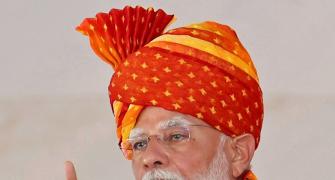For the first time in the history of Indian space research, a satellite developed by a university in India will be launched by the Indian Space Research Institute (Isro) during the next flight of the Polar Satellite Launch Vehicle (PSLV). Tentatively scheduled for launch in March-April this year, the vehicle will carry a small remote-sensing satellite completely developed and fabricated by Chennai-based Anna University, sources in Isro said.
Christened Anusat, the 35-kg micro satellite developed by students and researchers of Anna University with some hand-holding from Isro satellite centre in Bangalore, will be an additional payload on the PSLV flight, which will launch Risat, a radar imaging (RI) satellite from the Sriharikota spaceport.
The high-resolution pictures and data obtained from the IRS series of satellites are used for various applications such as drought monitoring, wasteland management, urban planning, mineralogical mapping, flood-risk management and management of National Natural Resources Management System (NNRMS), among others.
A brainchild of former Anna University Vice-Chancellor R M Vasagam, who was also the project director of Isro's first ever satellite 'Apple', Anusat is expected to encourage other universities and technical institutions to involve themselves in the complex process of satellite making. K S Seshadri, a retired space scientist from Isro is playing the role of the moderator between Isro and Anna University for this project.
Anusat carries a digital store and forward payload for amateur communication. A number of technological payloads like digital receiver and turbo coder, MEMS-based gyro and magnetic field sensor are also planned to be flown on board. Isro has supplied the structure, solar panels, chemical battery, sensors and actuators, according to a statement.
In April last year, Isro launched 10 satellites of which two were big satellites built by Isro. The remaining eight were nano-satellites built by foreign universities including the Canadian University, Dutch University and one university in Japan.
"Anusat project aims at giving the students first hand knowledge about the complexities involved with building satellites. Even though it is quite novice as compared to Isro remote sending satellites, the success of Anusat will definitely enthuse students from other universities and IITs to participate in future Isro missions," S Satish, spokesperson of Isro said.
It is understood that IIT Bombay and IIT Kanpur are also in the process of building micro-satellites. The discussion, however, is in the initial stages, said Satish.
Risat, the 1,780-kg remote sensing satellite planned to be launched from the Sriharikota spaceport will be a major breakthrough in the remote sensing project. The satellite which uses microwave payloads is capable of taking pictures in cloudy weather and even at night.
"This will be a major breakthrough as far as remote-sensing projects are concerned. So far all our previous remote sensing satellites were optical remote sensing satellites whereas the RI satellite will carry microwave payloads. It can penetrate through clouds and take photographs during night also. It has got all-weather and day-night capability," Satish added.
So far India had been procuring radar imaging data from Canadian Radarsat satellite on commercial basis. Other than being a costly proposition, the request for getting the radar imaging data of a particular place was also required to be sent well in advance.
Risat mission would have a C-band Synthetic Aperture Radar (SAR) payload, operating in a multi-polarisation and multi-resolution mode. SAR has the unique capability for day-night imaging and imaging in all-weather conditions including fog and haze.
Towards the middle of the current year, Isro is also planning to launch Oceansat, an ocean satellite using the PSLV from Sriharikota. The satellite will be an in-orbit replacement of the present version Oceansat satellite. The satellite will have an ocean colour monitor which will help identify potential areas for fishery.








